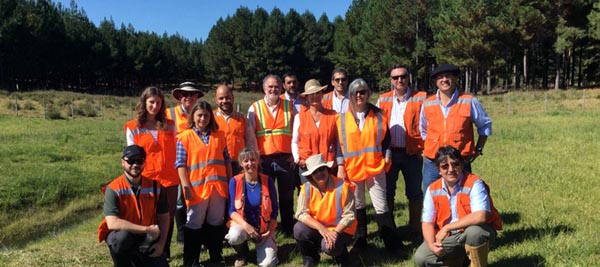PEFC to Take the Next Step in South America
A report this week by the Program for the Endorsement of Forest Certification (Geneva, Switzerland) explains the details of how PEFC members in South America gathered several months ago alongside 50 forestry sector representatives from around the continent with one key focus: to expand forest certification and the uptake of PEFC-certified products in the region.
The ‘Forest Certification: Current Situation and Prospects’ conference, which took place in Montevideo in Spring this year, attracted participants with an interest in promoting sustainable forest management, from representatives of ministries, NGOs and academic and research institutions, to private companies and the press.
"Thanks to this event we have been able to demonstrate to all the actors, and particularly the general public, the forestry sector’s commitment to act responsibly in all social and environmental aspects, as well as the economic ones clearly showcasing the significant work PEFC undertakes in safeguarding our forest resources," said Atilio Ligrone, national secretary of PEFC Uruguay and the manager of the Society of Forest Producers.
The conference provided the ideal setting to update the various participants on the present status of PEFC in South America, moving on to a discussion about the current and future market opportunities for PEFC-certified products. It also gave the opportunity to explore in more depth how the various stakeholders can best contribute towards increased demand and visibility of PEFC.
To provide additional support, representatives from national PEFC members in South America – CERFOAR (Argentina), CERFLOR (Brazil), CERTFOR (Chile) and PEFC Uruguay – were also on hand to share their experiences of developing and running PEFC certification systems with practitioners from across the continent.
The conference was part of a larger, four-day PEFC Regional Workshop, which brought together the South American-based PEFC organizations, external stakeholders and interested parties. By coming together in this way, current and potential South American PEFC members were able to begin the process of increasing their level of collaboration and cooperation, and move forward towards the development of a much strong presence of PEFC on the continent.
"For the PEFC National members of the region, the meeting enabled us to exchange experiences, clarify any uncertainties and share problems associated to the management of the systems, as well as to help identify new initiatives for the strengthening of PEFC in the region," continued Ligrone. "The meeting will help to facilitate future communications and the realization of joint enterprises, enhancing greatly the exposure and recognition of the system in the region."
The workshop also provided the opportunity for countries interested in developing their own national forest certification system, such as Guatemala, to learn more about PEFC and how to develop their own system in line with PEFC’s exacting Sustainability Benchmark requirement
The week was rounded off with a field visit to two PEFC-certified companies in Uruguay: UPM Forestal Oriental in Paysandú and Weyerhaeuser Productos S.A. in Tacuarembó. During the visit, company representatives highlighted the benefits of having a nationally-developed forest certification system, stressing the importance that the companies themselves participate in the development of such a system.
"We would like to thank PEFC International for supporting this initiative and the representatives of the National members of Spain, Chile, Brazil and Argentina and the representative of Guatemala for their participation and contributions during the week," Ligrone concluded.
TAPPI
http://www.tappi.org/

